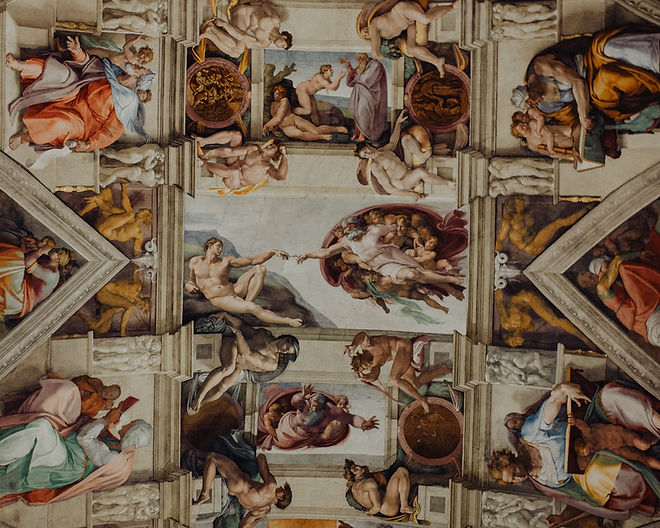top of page


Until Forever, Tom Verlaine
In memory of a game-changing artist for Rock history
This article is dedicated to Jimmy Rippetoe, for being a once-in-a lifetime friend for 42 years. And to Tom Verlaine, rock and roll legend, personal hero.
WORDS by Majo Aguilar

"The loss of Tom Verlaine is like losing a piece from the Louvre."
A dirty guitar riff resonates intermittently and strikes firmly, followed by three snare drum kicks that set the tone for bass and rhythm guitar. The mixture turns homogeneous and transforms into a song, one that imperatively declares the words “What I want, I want now, And it's a whole lot more, Than 'anyhow.'" Shaky and loud, it 's Tom Verlaine singing his own lyrics accompanied by the music of his band, Television. Formed in 1973, the New York quartet composed by Billy Ficca on drums, Fred Smith on bass and Richard Lloyd on guitar follow the lead of main guitarist and singer, Tom, in the opening track of their first record, Marquee Moon (1977). To say that Marquee Moon is an influential album is an understatement. Marquee Moon changed the course of rock history from the underground world to modern and mainstream rock, it is a true sonic revolution, one that Tom Verlaine gave voice to.
Born Thomas Joseph Miller on December 13, 1949 in New Jersey, Tom discovered his interest in writing during his adolescence, while his passion for guitar came after listening to "19th Nervous Breakdown" by the Rolling Stones. After discovering their matching interest in poetry and music, Tom and his Stanford School colleague, Richard Mayers, became friends. Both escaped to New York separately and founded the Neon Boys in 1973 alongside Tom’s Delaware acquaintance Billy Ficca. Around the same time, both Tom and Richard changed their names with artistic purposes, their new surnames being Verlaine (borrowed from French poet Paul Verlaine), and Hell, respectively. In 1975 the band kicked out Richard Hell over disputes regarding creative control, incorporating Blondies’ ex-bassist Fred Smith and rhythmic guitarist Richard Lloyd; that same year they changed their name to Television. Before 1977 the band recorded various demos with now legendary producer Brian Eno, among which we can hear early versions of songs that would end up forming part of Marquee Moon, such as "Venus," then called "Venus de Milo." They simultaneously played gigs at the Country Bluegrass and Blues club, most commonly known as CBGB, or in other words, the indisputable birthplace of punk and new wave music.


Early days of Television, c. 1973
There's an issue with Television, and that was defined from the moment they set foot in CBGB. For years, rock pundits and fans have labeled them as punk, but there's something about this band that has made their musical legacy so enduring, and it's precisely the fact that they're not a punk band entirely. Television is a band that unconsciously shares a spectacular quality with one of its greatest influences, the 13th Floor Elevators. Like the performers of "You're Gonna Miss Me," Television is one of those few bands that lived in a future still unknown to the world, even unknown to them. Like time travelers, they were capable of things that were not even contemplated in the musical imagination from the beginning to the mid-seventies, much less at the end of that torrid decade. Just as the 13th Floor Elevators made of music something acidic and capable of making you feel an inexplicable frenzy in the year 1965, years before Hendrix or Joplin even appeared on the scene, years before people could give a meaning to the word psychedelia, Television happened to create an unknown sound in their era. And the issue is not music related only, it gives me chills just to think that Richard Hell already had spiked hair and torn tight-fitting jean clothing in the early '70s, when bell-bottoms and exuberant shirts were popular. Malcolm McLaren, future manager of the Sex Pistols, has repeatedly admitted how shocking it was to see Hell dressed as if he lived a lustrum in the future and has even declared that he copied his look and transferred it to the already pre-planned Sex Pistols. It seems magical and crazy to think that in the era of the rise of Led Zeppelin, the greatest rock band in history, where the hangover of the sixties still had a visual impact on everyday fashion, full of velvet, suede, wool and denim, there was a young man living five years in the future.
The minute Television set foot on CBGB they were branded for life with a tag that said PUNK in big, thick letters. The simple fact of going to the cradle of punk cataloged them as such, the boys had the eerie look, that something that made it seem like they were part of that space, but it clouded the view of their most essential quality, not only they were true originals and innovators, Television had an it factor that separated them from punk bands. They had a class that was all their own.

"It gives me chills just to think that Richard Hell already had spiked hair and torn tight-fitting jean clothing in the early '70s, when bell-bottoms and exuberant shirts were popular."
Richard Hell, 1973
While being a generalization, Punk is often anarchism, rage, anger, and debauchery. Punk shouts at the state, punk screams at the system, punk breaks with all and everything around it. I don't describe this as something unpleasant musically speaking, because I have to admit that it is one of my favorite genres, but Television simply does not fit into that category. The group and their album Marquee Moon are the sound heaven in the middle of the musical tornado that was taking over the late 70s.
Television's larger than life impact in music is because in the middle of that tornado, they created a refined new sound, something never played before, something that sat in the limbo in-between punk and classic rock. So what is Television then? Television is a rarity, a unique piece, it is as strange as being able to see a starry sky in the city, they are an oasis in the history of rock music, a milestone in guitar music.
Television is like that time when Michelangelo painted the Sistine Chapel, in the 16th century there were many painters, all Renaissance, all in the same country, many doing oil paintings which would have replicas made, but the Sistine Chapel would never be reproduced again. Television is that Sistine Chapel of rock, their sound is comparable and equivalent to any novel written by Burroughs or any painting done by Dalí. Without a doubt, the Michelangelo of this unique piece is Tom Verlaine, the true master of overcoming the most terrifying test in history: time.

"Television is that Sistine Chapel of rock, their sound is comparable and equivalent to any novel written by Burroughs or any painting done by Dalí. Without a doubt, the Michelangelo of this unique piece is Tom Verlaine, the true master of overcoming the most terrifying test in history: time."
Today young people no longer yell at the Queen that she is not a human being or write songs about the fallen men in the Second World War, but they have all gone through fantasies and realities in the city, they have contemplated their life, they have experimented with substances and feelings, they have felt the need to find their purpose, they have loved and stopped loving, they have lived a life they will remember, and so did Verlaine, and he put it into words for eternity. Tom wrote hundreds of songs that spoke the truth with a very down to earth and yet poetic approach, a proof of his master talent for writing can be appreciated in just a paragraph; It's still haunting and bewitching the way he put into paper one of youth's most existentialist questions, a matter that has stolen some nights of sleep to many, and it has remained that way after forty six years since he wrote the words:
I spoke to a man
Down at the tracks
And I ask him
How he don't go mad
He said, "look here, junior, don't you be so happy
And for heaven's sake, don't you be so sad."




Tom playing guitar and at the studio
After writing some of the best lyrics ever in his career and dropping Marquee Moon in February of '77, gaining critical acclaim in the UK specifically, Tom Verlaine continued his musical journey with Television in 1978 publishing Adventure, as poetic and down to earth as its predecessor. After the band broke up, Tom kept making music as a solo artist, recording two particularly outstanding and earth-shattering records as good as Marquee Moon with an obvious Television-esque trace: Tom Verlaine (1979), and Dreamtime (1981). In 1992 Television reunited to make one last album, an homonymous piece that shows a more mature version of both Tom and the band. Over the years, they would occasionally get together to play live shows, switching their rhythm guitarist for a new member, Jimmy Ripp, who had been guitarist for Mick Jagger, Debbie Harry, Jerry Lee Lewis, and a very dear friend of Tom. Their last concert was around 2016. They never made a record again.
The loss of Tom Verlaine is like losing a piece from the Louvre. Tom changed the world and he had no idea at the moment he was making it, what he did for guitar music is indescribable, his playing technique and his compositions are as complex and important as any symphony by Beethoven. At a time when music could be labeled by its characteristic sounds, Tom Verlaine made his riffs of the past sound like the future, and the subsequent future. The secret for Televisions' enduring legacy in rock and roll is how timeless they are, you couldn't tell that you have 1977 across your headphones, you couldn't tell how many bands you enjoy are built upon the core of Television, consciously or not. Whenever you listen to Echo and the Bunnymen, Television is there, whenever you play a track where U2's guitarist, The Edge, performs, Tom and Television are there, whenever hearing Siouxsie and the Banshees, Sonic Youth, The Clash, in every chord, in every kick, Television is part of their system, and of course, we can not forget about fellow New Yorkers- whenever you hear Nick Sinner from the Yeah Yeah Yeahs play some dirty riffs, Mr. Tom Verlaine has something to do with it, and above all, whenever you hear modern rock and roll stars, the forever named rock and roll saviors -that band of five kids from New York called The Strokes- in every inch, in every tone, in every guitar, Tom Verlaine and fellow bandmates are brought back to the streets of the city that never sleeps. Without Tom Verlaine there is no Television, without Television there are no Strokes, with no Strokes there is no modern rock and roll, which brings us back to ask, who is the real rock and roll savior? Thanks Tom!



Tom and Richard Lloyd
Tom Verlaine has marked many lives –mine included– of musicians and not. It's with a heavy heart that we have to say goodbye to one of the most important artists in music of the second half of the 20th century, and it is with a weird kind of pain and sadness that I say goodbye to a personal hero. The comforting thing is that we will always have Tom around, maybe not physically, but he is there, in every new recording by a kid that just picked up guitar, in that new record by that new band, in his own music. We say goodbye to rockstar Tom Verlaine, but we salute his legend, forever.
bottom of page
